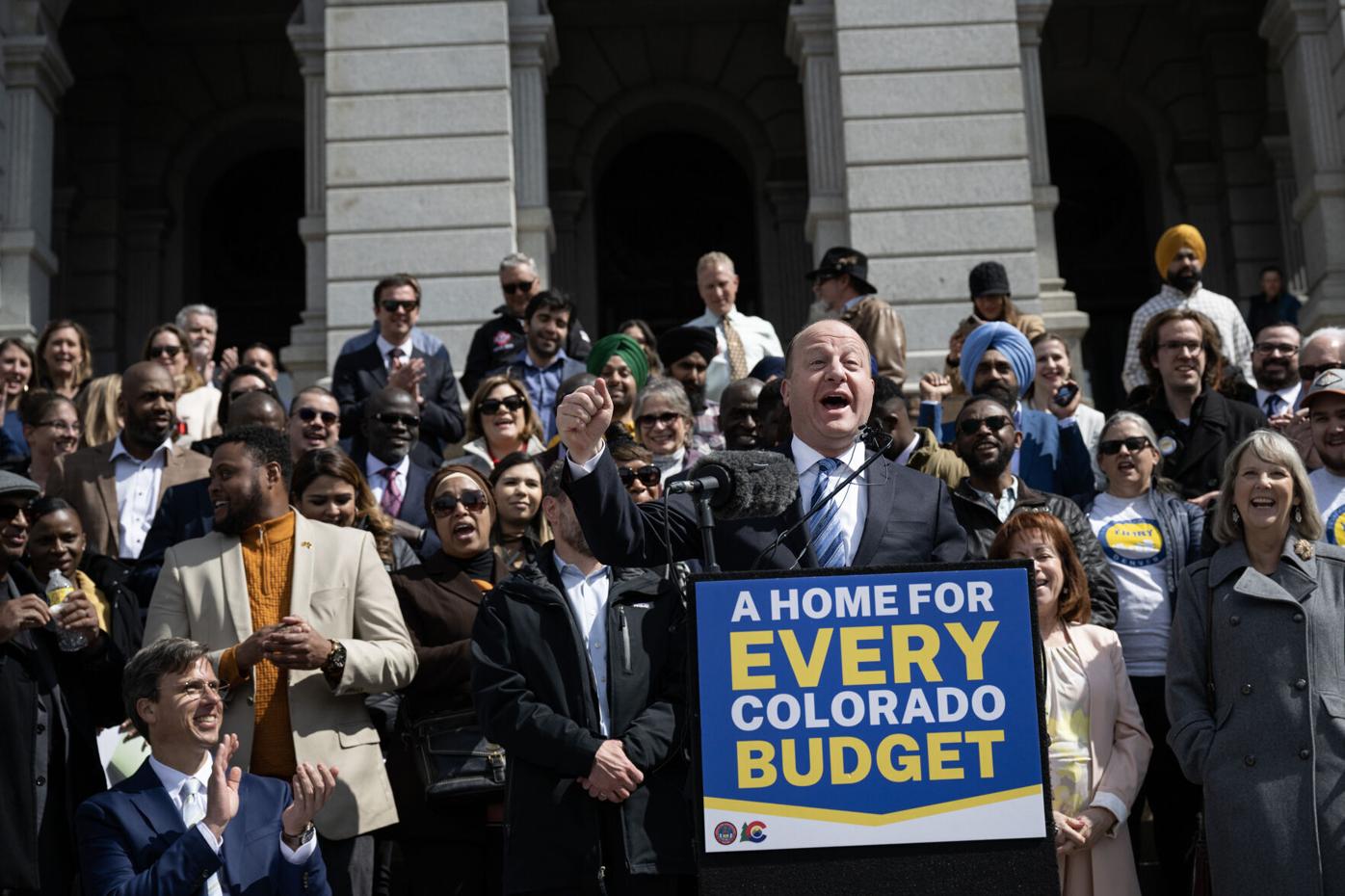Denver’s top elected officials oppose Polis administration’s ‘fundamentally flawed’ housing proposal
Denver Mayor Michael Hancock and Denver City Council President Jamie Torres on Wednesday broke their silence on the Polis administration’s land use plan, issuing a joint statement condemning Senate Bill 213 as a “fundamentally flawed” proposal that Denver’s municipal government opposes.
In their statement, Hancock and Torres said they agreed with the goals of SB 213, noting the city has deployed many of the same tools — accessory dwelling units, a comprehensive plan and transit corridor density — to address the city’s affordable housing crisis.
“We greatly appreciate that Gov. Polis and the bill sponsors have stepped forward to remove barriers for affordable housing, promote middle housing solutions, seek density near transit and ensure all communities across Colorado take on a role in addressing this fundamental challenge,” they wrote.
Where they part ways with the governor is on the bill’s top-down approach, its efforts to hand over local control over land use decisions to the state, the lack of real affordability requirements and the potential for shutting out community voices on land-use decisions.
“We have serious concerns about the attempt to preempt local land-use control; the unintended, but very real consequences of broadly up-zoning when it comes to displacement and gentrification; lack of true affordability requirements in the bill; and the potential to undercut extensive community work to develop bold, but appropriate plans and zoning for our residents,” they wrote.
SB23-213 is “a laudable, but fundamentally flawed, top-down approach, and Denver is opposed to the bill as currently drafted. There are other ways to promote and implement the goals and policies being proposed without attempting to preempt home-rule authority, and we would encourage proponents to use the legislative process to open these conversations towards those ends and include more stakeholders to create an affordability package everyone across Colorado can support – because it’s needed.”
The statement comes one day after the Metro Mayors’ Caucus issued a letter opposing the Polis administration plan to mandate land use and zoning regulations that had previously been the purview of local governments.
The letter was backed by 27 out of 28 mayors who participated in the vote, with Boulder Mayor Aaron Brockett the lone “no” vote.
SB 213 would require Front Range municipalities and rural resort communities to either adopt “flexible minimum standards” or mandated to use a state-developed model, which would include zoning changes.
The Colorado Department of Local Affairs, which for years has had a collaborative relationship with local governments, will be put in the position of enforcing those mandates for municipalities that don’t go along with the flexible option.
The flexible standards include ADUs — accessory dwelling units, also known as in-law apartments or granny flats — and so-called “middle housing,” such as duplexes, triplexes, fourplexes and townhomes. Under those standards, the municipality can’t require parking but the developer can add it. Resort communities have additional flexibility to work regionally on housing strategies that would allow them to find the best places for more dense housing.
For renters, municipalities can regulate short-term rentals for the housing listed above, with “affordability strategies.”
The bill, however, doesn’t mandate the housing that could be built be affordable.
Polis, through a spokesman, said he welcomes “all input that will make the policy stronger and more effective including suggestions from the Mayor and City Council President.”
“The governor hopes that the unprecedented coalition of housing advocates, organized labor, business, and environmental advocates take good ideas from all sources that truly change the course in Colorado to create more housing now and ensure more Coloradans can afford their rent and live the dream of home ownership,” the governor’s office added.





